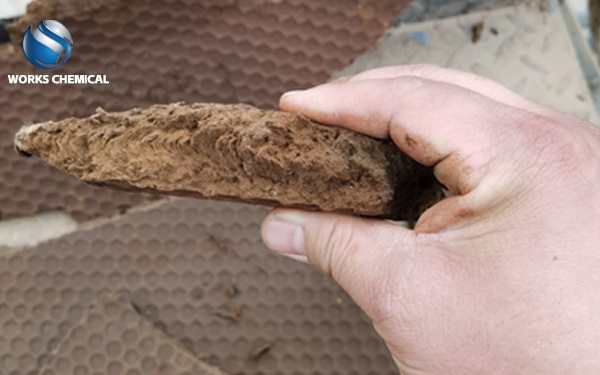
Sludge conditioner and sludge dehydrating agent play different roles in the sludge treatment process, and there are obvious differences between them, as follows:

Stages of use and functional features:
Sludge dehydrant is mainly used in the dewatering stage, and its main function is to improve the efficiency of dewatering. Sludge dehydrant can reduce the moisture in the material or remove the crystal water in the compound molecules.
Sludge conditioner: Can be used throughout the sludge treatment process, including pre-treatment, dehydration and subsequent treatment. In addition to improving the efficiency of dehydration, sludge conditioners also have a wider range of functions, such as improving other properties of sludge.
Composition and action principle:
Sludge dehydrating agent: can be a chemical substance, such as ethanol, acetone, glycerin, etc., its role is to reduce the moisture in the material. For medical or care dehydrating agents, such as mannitol, sorbitol, etc., the principle is to increase the osmotic pressure, so that water moves from the high concentration area to the low concentration area, so as to achieve the dehydration effect.
Sludge conditioning agent: containing water purification agent, organic polymer, sludge stripping agent, sludge surface treatment agent, wall breaking agent degreaser, sludge surface structure modifier and other components. Sludge conditioner removes water in sludge by changing the surface properties of sludge, reducing the specific surface area of sludge, destroying cell wall and cell membrane to release intracellular water, etc.
Use effect:
Sludge dewatering agent: can significantly reduce the moisture content of sludge, but the function is relatively simple.
Sludge conditioner: can improve the overall sludge treatment effect, including reducing the overall amount of sludge, improve its stability, etc. For example, the use of sludge conditioner combined with the plate and frame filter press can reduce the sludge moisture content from more than 90% to 35%-50%, fully realizing the reduction of sludge.
Features and advantages:
Sludge dehydrating agent: various, suitable for different industries and fields. However, the effectiveness of treatment for specific sludge may be limited.
Sludge conditioner: It has strong dewatering ability and can significantly improve the dewatering efficiency and treatment effect of sludge. At the same time, by improving other properties of the sludge, it is helpful for subsequent sludge utilization and disposal.
In summary, sludge conditioner and dehydrating agent have different roles and functions in sludge treatment process. Sludge dehydrant is mainly used in the dewatering stage, and its function is relatively simple. The sludge conditioner plays a role in the entire sludge treatment process, with a wider range of functions and better treatment effects. Therefore, when choosing which agent to use, it is necessary to comprehensively consider according to the specific sludge treatment needs and objectives.